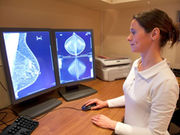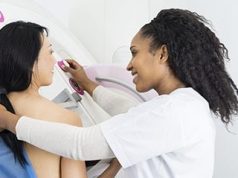Link found between ambient light and higher odds in young, smoking females, but more research needed
MONDAY, Aug. 21, 2017 (HealthDay News) — There is an association between living in areas with high amounts of ambient nighttime light and slightly increased odds for breast cancer in younger women who smoke, according to a study published online Aug. 17 in Environmental Health Perspectives.
Researchers tracked 109,672 U.S. women, followed as part of a long-term study of nurses from 1989 to 2013. The researchers used nighttime satellite images and records of night shift work to help calculate the amount of nighttime light each woman might have been exposed to.
The team found that breast cancer levels in premenopausal women who currently smoked or had smoked in the past grew by 14 percent if they were in the 20 percent deemed to have had the most exposure to outdoor light at night. As levels of outdoor nighttime light went up, so did the likelihood of breast cancer for this subgroup of women. Older women, and women who’d never smoked, did not seem affected, the researchers said. The study also found evidence that working night shifts might boost the breast cancer risk.
“In our modern industrialized society, artificial lighting is nearly ubiquitous,” study author Peter James, Sc.D., an assistant professor of population medicine at Harvard Medical School’s Pilgrim Health Care Institute in Boston, said in a Harvard news release. “Our results suggest that this widespread exposure to outdoor lights during nighttime hours could represent a novel risk factor for breast cancer.”
Copyright © 2017 HealthDay. All rights reserved.








